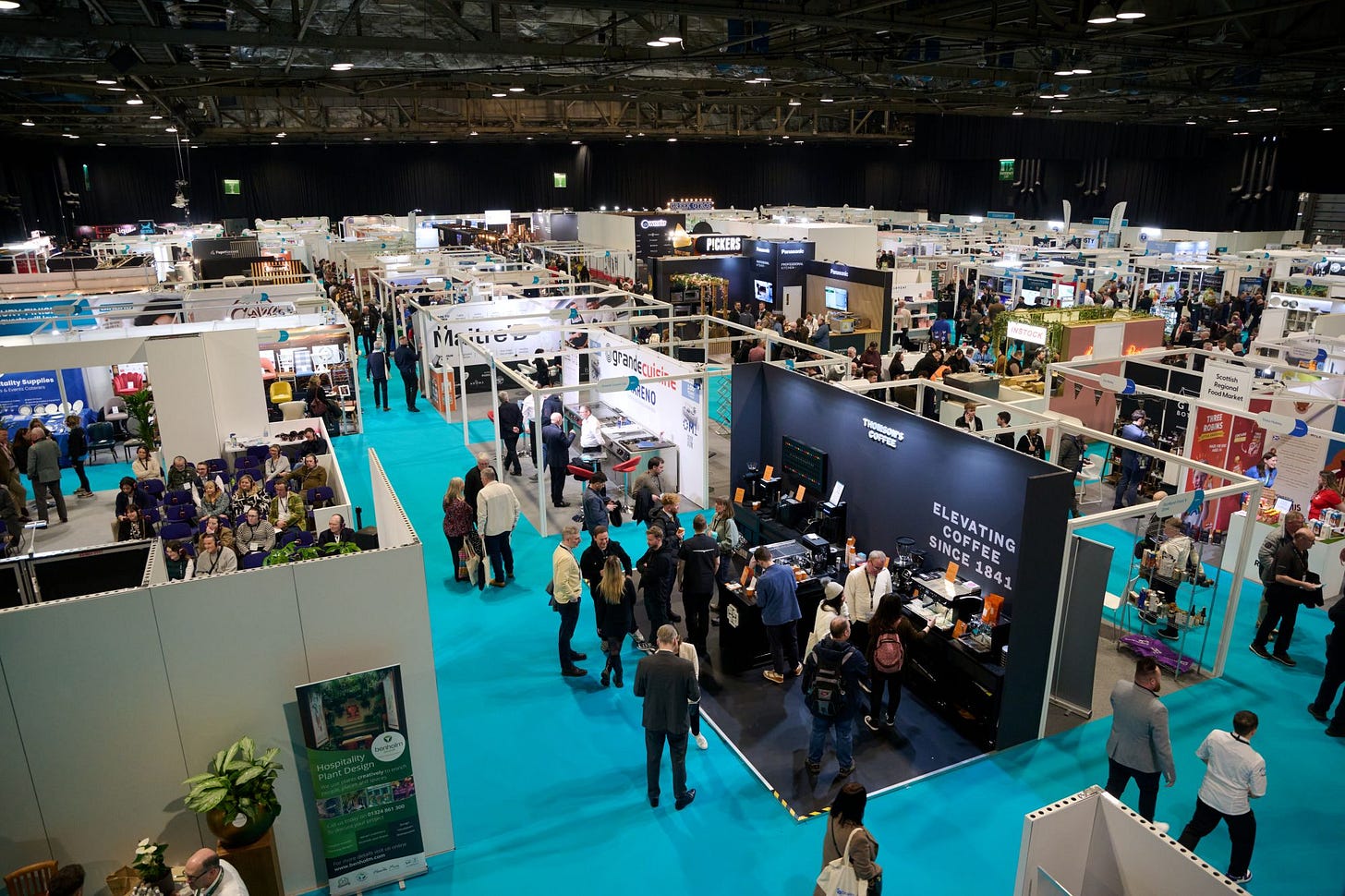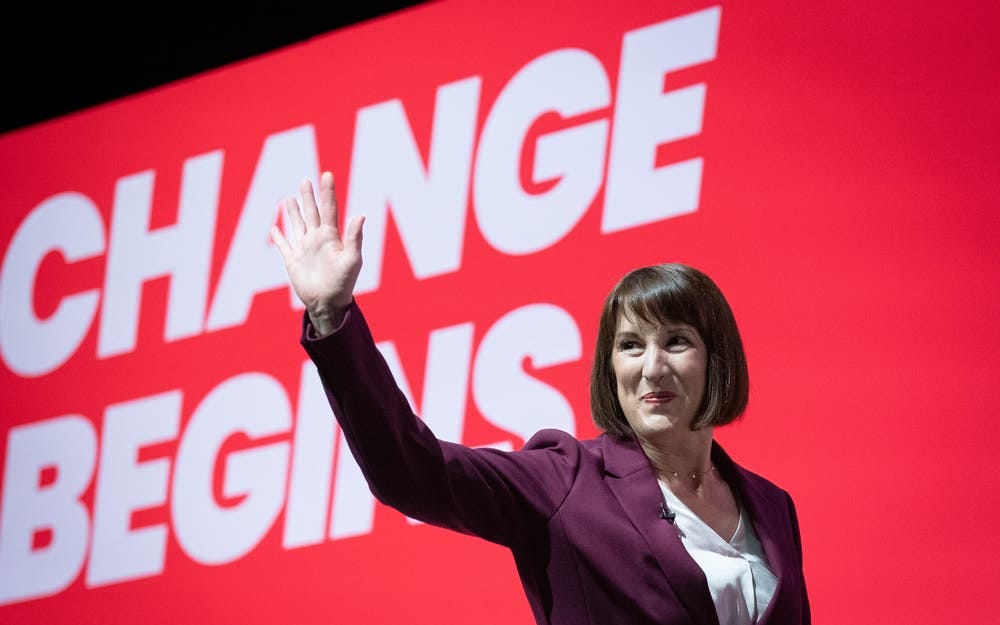The Donald Macleod Column
Tax, Tax, Tax – the only growth industry the government seems to know!
EXCLUSIVE by Donald Macleod MBE
Last Wednesday and Thursday, inside the SEC Campus, the air was alive with the excited chatter of thousands of delegates, punctuated by the rich aroma of freshly ground coffee and the sizzle of street food stalls at Scotland’s premier hospitality industry event — SCOTHOT.
Amongst the 200 exhibitors, baristas frothed milk with precision, mixologists worked their magic behind buzzing stands, while food vendors dished up samples of fragrant dishes — a point surely not lost on the delegates attending the UK Diabetes Conference next door.
Samba dancers in full carnival colours weaved through the crowds, promoting Brazil’s latest beer, Favela, as aspiring chefs battled it out in the live theatre of the Scottish Culinary Championships.
It was a feast for the senses — a breathtaking showcase of the passion, creativity, spirit and sheer hard graft that drives Scotland’s industrious but embattled hospitality industry.
Over two days, 7,000 delegates were able to sample everything from Thai food to whisky tastings, Highland cheeses to real chips, low-alcohol drinks to craft beers.
The palpable enthusiasm on display reminded me why Scotland’s hospitality industry is something to be celebrated and proud of.
The Liquid Academy’s live bar hosted insightful panel discussions about products and the future of the sector, with a host of guests and tireless industry leaders like Leon Thompson from UK Hospitality, Colin Wilkinson of the SLTA, the SLTN Licensee of the Year Steve Latte, and Marc Crothall, head honcho of the Scottish Tourism Alliance.
Meanwhile, the STA Spotlight Stage held a wide range of discussions on subjects such as upskilling the industry, nurturing the next generation, and the unenviable task of strengthening Scotland’s global reputation as a value-for-money, quality destination.
Nonetheless, despite it being a truly inspiring and uplifting event, behind all the smiles and spectacle, there was no hiding the tension of a post-COVID industry fighting to survive under the crushing weight of rising costs and government tax policies, which are seemingly hell-bent on taxing them into oblivion.
The sun might have been shining outside, but inside, worrying storm clouds were gathering for many of the delegates — with Chancellor Rachel Reeves’ chilling April Spring Statement the top talking point and bad smell in the room.
Across the UK, hospitality businesses face a staggering £3.4 billion tax bill from National Insurance increases alone.
Combined with an above-inflation hike in minimum wages and a surge in operating costs of around 40% over the past year, 85% of hospitality businesses are now planning to cut staff hours and salaries in order to survive.
Sadly, for many despairing operators, this spring bounce — sorry, UK Government mugging of their finances — will mean last orders.
Almost all have frozen investment — and without investment, there is no future.
If all that wasn’t bad enough, the introduction of a tourist tax is casting a cold shadow across Scotland’s hoteliers, B&B owners, and campsite owners.
With Edinburgh set to introduce a five per cent levy in 2026 — and Glasgow and all of Scotland’s 32 local authorities set to follow — it’s yet another nail in the coffin.
Unlike other towns and cities across the UK and the globe that have introduced this levy, in Scotland, it’s not just tourists who will be forced to stump up — Scots will also be penalised for staying in Scottish hotels, hostels, B&Bs, and campsites.
Since when did Scots have to pay to stay in Scotland? It’s yet another tax on growth — and as I’ve always said, you can’t tax your way to growth.
It’s an absolute disgrace.
Council tax hikes of up to 15% in some cases and surges in energy prices will further squeeze household budgets, leaving less money to spend in bars, restaurants, and clubs.
The continual highway robbery of the motorist — with hikes in parking charges, fuel, car tax, and insurance, as well as LEZ policies — is driving down footfall and squeezing spend across Scotland.
In anti-car Glasgow, which has haemorrhaged three million visitors in a year and is trying to plug a £34 million black hole, there are now serious discussions about introducing a business car parking levy and a congestion charge on the Clyde Tunnel — when it’s actually the plethora of potholes that urgently need filling.
Let the train take the strain? Forget it! On top of the cancellation of the popular peak times discount, ScotRail and the Scottish Government have decided to make fools out of commuters on April 1st with a further 3.8% increase in rail fares.
The lack of support and constant assault on our industry and the public’s pockets by both governments and our councils is as unrelenting as it is astonishing.
So much so, I now feel like a pelican — because no matter which way I turn, there is always a big bill in front of my face.
Here in the UK, all we hear is tax, tax, tax — it seems to be the only growth industry governments and councils are interested in.
Both talk a good game about supporting hospitality and tourism, but the reality is it’s nothing but empty promises about jam tomorrow. They are robbing us blind.
Come April, when the full impact of these rises hits, many businesses simply won’t be able to survive — an avoidable tragedy for an industry that works tirelessly to attract people, jobs, and skills to Scotland, in order to give them a great experience.
Scotland’s hospitality and tourism sectors are something we should all be proud of and support — but that doesn’t seem to be the case with both our governments. Without urgent action to lower VAT, bring down energy costs, introduce a fairer rates cap across the board, and scrap punitive taxes such as the appalling NI rises, we risk losing the very businesses that make our towns and cities vibrant places to live and visit.
It’s absolutely galling to look across the Irish Sea, where the Irish Government reduced VAT for hospitality to 13.5% in 2020 and now plans to cut it further to 9%.
That’s how you support growth — by incentivising businesses, putting money into people’s pockets, and encouraging spend, not taxing them into the ground.
I’ve said it before, and I’ll say it again — you cannot tax your way to growth!
Many of the politicians responsible for these damaging policies — this economic vandalism — and who in recent years have shown hostility towards our hospitality sector will be long gone after the next Scottish elections, walking away with healthy pensions while leaving the rest of us to pick up the pieces.
I can only hope by then that the passion, energy, dedication, fight, and unifying spirit shown by this great Scottish industry at ScotHot is still in evidence and beating strongly — that it is alive and kicking — and that the new batch of political rookies, of all parties, lining up to fill the empty seats in Holyrood don’t repeat the mistakes of their predecessors and finally give our hospitality and tourism sectors the respect and support they clearly need and deserve in order to thrive and grow.
They call hospitality Scotland’s beating heart — but right now, it’s on life support. The industry’s customers and its workers demand better.
If you enjoyed The Donald Macleod column, please sign up for The Splash and support independent journalism for Glasgow. Your paid subscription ensures that columns like these continue to be told — stories that matter to you and our community. Every subscription helps keep Glasgow's voices strong and keeps independent and community-driven journalism alive.









Some interesting points , but yet again basic flaws and sweeping misunderstanding and misinformation.
The easiest one, french and Spanish citizens also pay their relevant tourist taxes.
The business parking levy is optional for councils and they'll have a choice .
Minimum wage increase means more disposable income for those on the lowest income , increasing their spending power = more in hospitality.
Clyde tunnel takes over £1million from the general pot to support motorists, even a nominal 20p fee would pay it's maintenance and support better infrastructure.
I wish a bit more research and evidence o was brought to the table , otherwise it's just an ill informed rant.